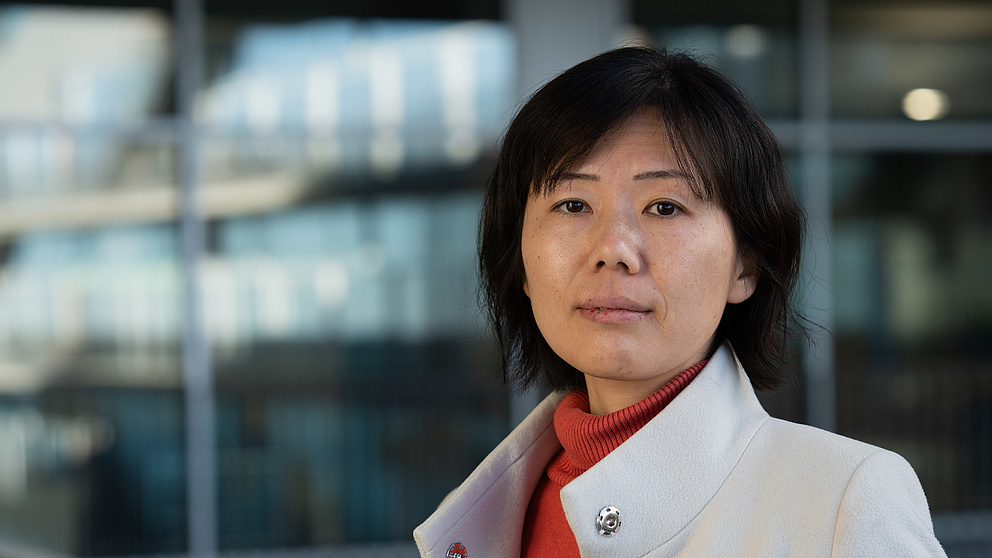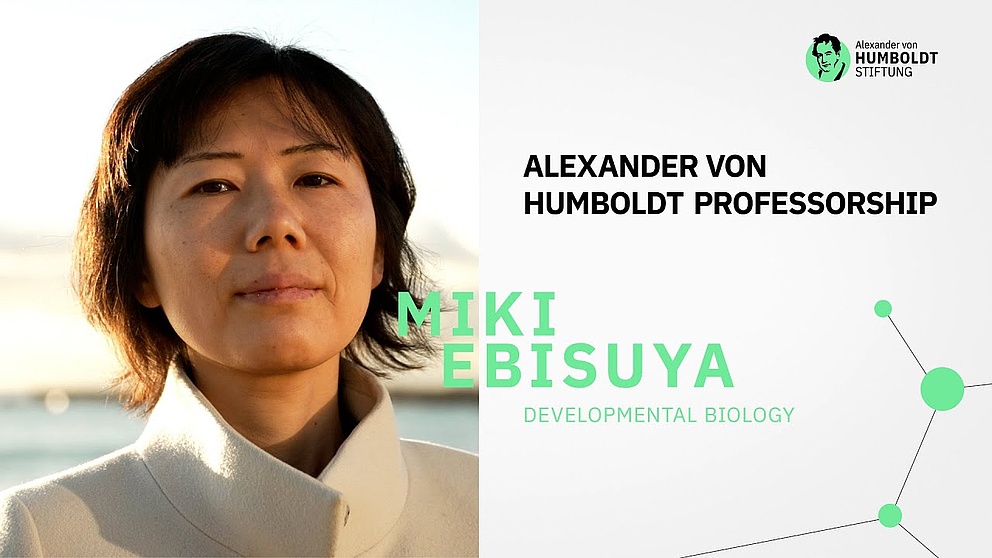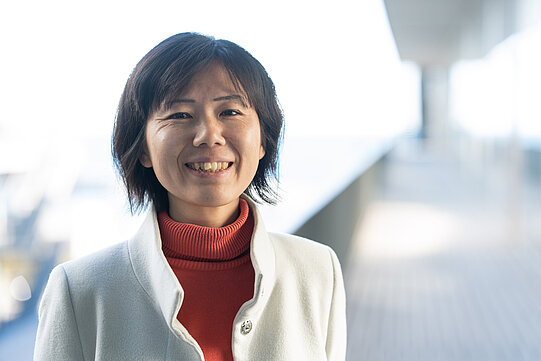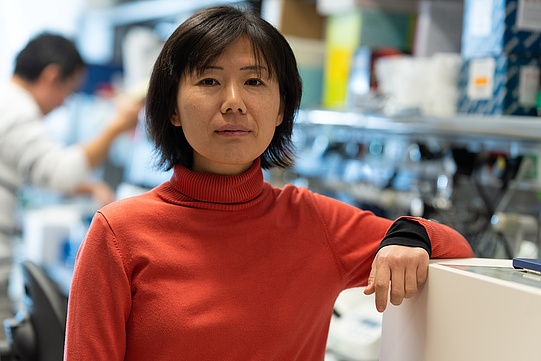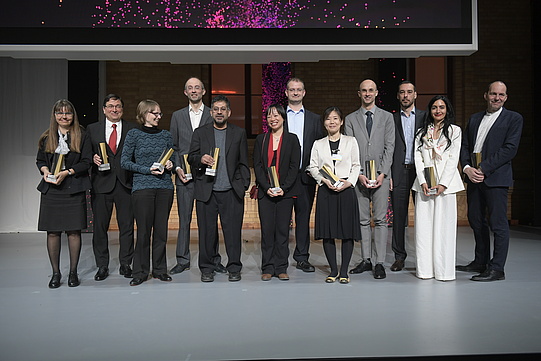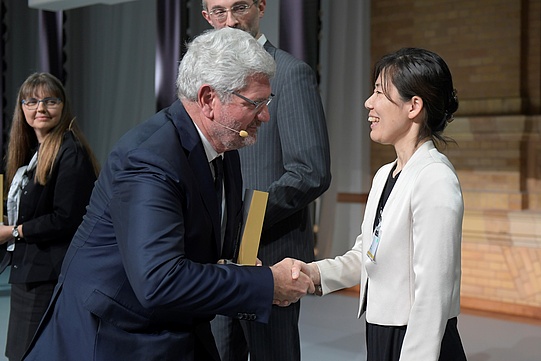Jump to the content
- {{#headlines}}
- {{title}} {{/headlines}}

Contact
Press, Communications and Marketing
Tel.: +49 228 833-144
Fax: +49 228 833-441
presse[at]avh.de
Developmental biology
A human pregnancy lasts roughly nine months whereas in a mouse it only takes 20 days and in an elephant a whole 22 months. During the embryonic stage in many species, the sequence and basic mechanisms of the developmental process are largely the same, but the speed of development differs substantially.
The physical principles and molecular causes of these differences are still unclear, not least because it is technically difficult and ethically controversial to compare the embryos of several species. Numerous environmental factors such as nutrients and body temperature have to be normed before such a comparison can be made. Moreover, access to embryos of most species, including humans and elephants, is very restricted.
Miki Ebisuya found a new technical approach to tackling this problem. Her group recapitulated the developmental processes in vitro (in a test tube) by using pluripotent stem cells from several species. Pluripotent stem cells can develop into every type of cell in an organism and even produce 3D tissue, known as organoids, that imitate certain aspects of development. Potentially, in vitro models of this kind can be created from many species which can then be compared under identical culture conditions. Miki Ebisuya has built a unique “stem cell zoo” with stem cells from many different species that now allows the very first systematic analysis of the developmental time of various species.
At TU Dresden, interdisciplinary research into biological questions is already firmly established. A leading role in this is played by the cluster of excellence “Physics of Life” which unites biology and physics, supplementing them with approaches taken from bioengineering and bioinformatics. Miki Ebisuya’s expertise in synthetic biology and optogenetics will complement the Physics of Life cluster perfectly, expanding it to embrace investigations into the biological clock and the three-dimensional self-organisation of tissue development.
Brief bio
Miki Ebisuya took her doctorate at Kyoto University in Japan, the country of her birth, in 2008 and subsequently became a research group leader there. Having completed a stint at the Japanese research institute RIKEN in Kyoto, she relocated to EMBL (European Molecular Biology Laboratory) at its newly-established site in Barcelona, Spain, as a group leader in 2018. She was granted a Japanese award for excellent junior female researchers in 2019 and an ERC Consolidator Grant in 2020.

